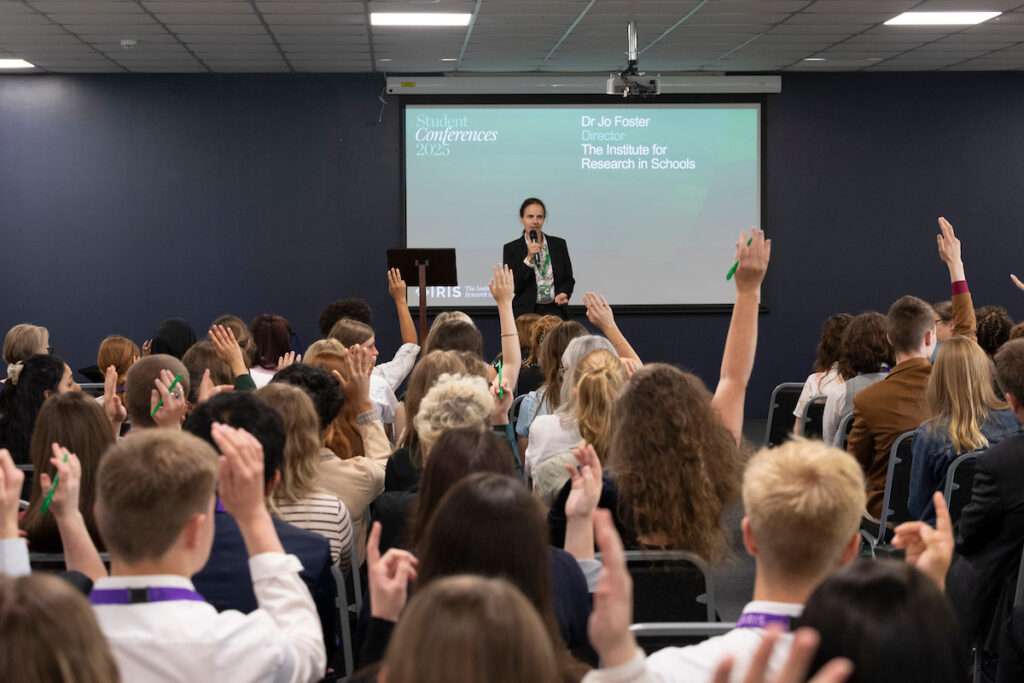
In an open letter, our director Jo Foster has called on the Secretaries of State for Education and Science to urgently reform science education to increase the number of students studying towards STEM careers.
Subject: Urgent Need for Science Curriculum Reform to Safeguard the UK’s Future in STEM
To: The Right Honourable Bridget Phillipson MP, Secretary of State for Education
The Right Honourable Peter Kyle MP, Secretary of State for Science, Innovation and Technology
Dear Secretaries of State,
I am writing to you today in my capacity as Director of IRIS (the Institute for Research in Schools), to highlight critical issues within our current STEM education system that threaten to undermine the significant and welcome investments the government is making in science and technology.
While the announcement of £86 billion for the science and technology sector by the end of this Parliament to “turbo charge” sustainable technologies, AI, and life sciences is commendable, there is a fundamental disconnect between this ambition and the current reality of how STEM subjects (sciences, technology, engineering, and mathematics) are delivered in our schools. As the Chancellor Rachel Reeves herself stated, “Britain is the home of science and technology.” Yet, we face a significant challenge in ensuring we have the future scientists and engineers necessary to support this vision.
In other words, the current way science is taught in schools is actively putting students off taking up STEM for further study.
Our recent report showcasing findings from a groundbreaking project involving multiple schools offers a solution.
Research found that:
- The current curriculum approach ‘nudges’ young people away from STEM as a future career. This is particularly concerning given that very few of the ten million young people learning STEM subjects in school each year choose to pursue related education courses and careers.
- We risk simply widening an already alarming skills gap if we do not produce the future engineers, sustainability innovators, and experts in AI. Projections indicate a need for £13 billion annually by 2030 to invest in upskilling adults with the right STEM skills, highlighting the existing deficit.
- There is a significant lack of diversity in the STEM workforce, with only a quarter of the STEM workforce being female, which is not representative of the population in terms of sex, race, ethnicity, or socio-economic backgrounds.
IRIS trialled a new approach in nine schools, where students had opportunities to learn about STEM through the lens of research and innovation, which reflects how these fields work in the wider world. The project was driven by student survey data, and tailored to individual schools. Each school carried out a unique programme of activities designed to engage all students and transform their understanding of what STEM means to their lives. The results were overwhelmingly positive.
In the nine schools that took part, this way of delivering STEM through the lens of research and innovation delivered significant benefits, including:
- Prevented the decline of science capital
- Challenged negative stereotypes about who belongs in STEM
- Transformed young people’s understanding of STEM careers – particularly among girls
- Empowered teachers to drive positive change across their schools
This evidence strongly suggests that our current approach to science in schools needs to be refreshed. Without this change, the significant government investment, while welcome, risks putting the “cart before the horse” if we fail to inspire and cultivate the next generation of scientists and innovators we urgently need to match the jobs of the future.
Therefore, I urge you both, as you oversee the crucial Curriculum and Assessment Review, to take this opportunity to refresh the science curriculum to better reflect the needs of young people and the economy. Reforming how STEM subjects are taught to inspire and engage young people with real-world applications and career pathways is not merely an educational matter; it is a fundamental imperative for the UK to become and remain a science superpower and to address our future skills needs.
Thank you for your time and consideration of this vital matter.
Yours sincerely,
Dr. Jo Foster, Director, Institute for Research in Schools